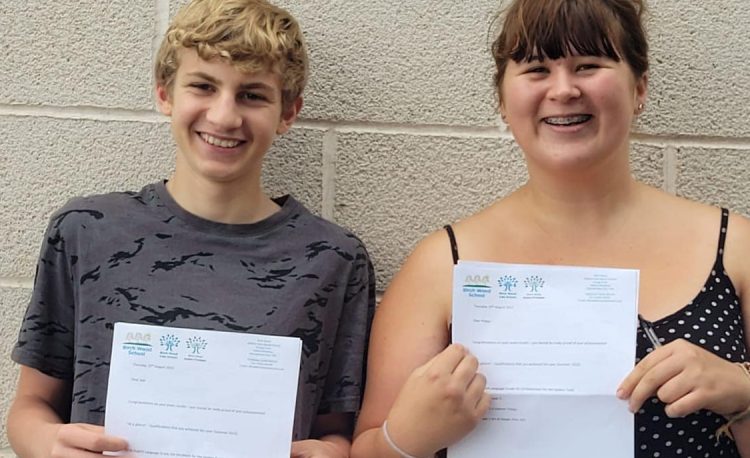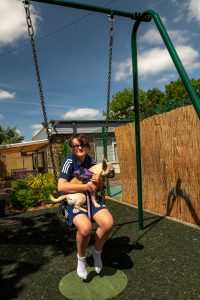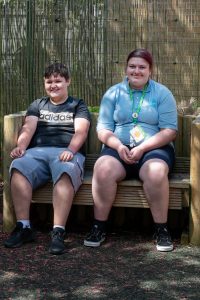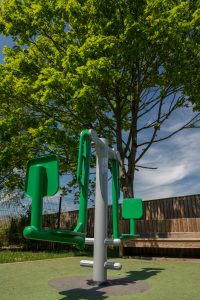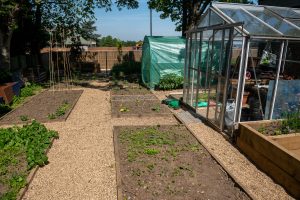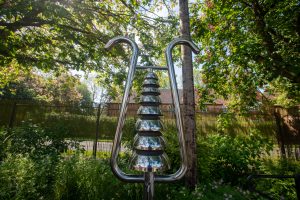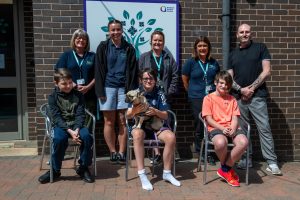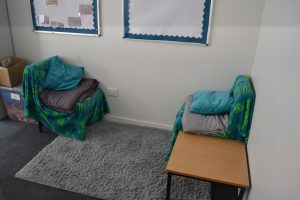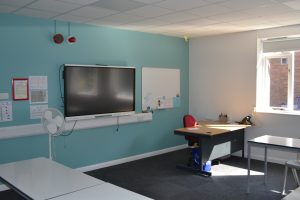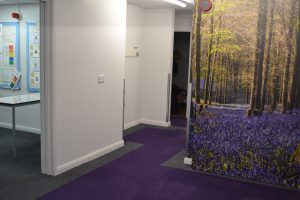Birch Wood School is a National Autism Society advanced accredited school.
Please see our reports below.
“We have created a learning environment where every pupil with autism feels supported and appreciated, where difference is celebrated and understood and where young people can reach their true potential academically, socially and emotionally.”
Amy Dunstan – Deputy Head Behaviour and Culture
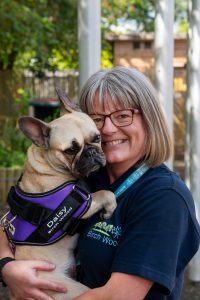
Birch Wood is an NAS Advanced Accredited (2022) centre of excellence for children with Autism. We provide personalised programs designed to support pupils in reaching their full potential in a safe and nurturing setting. Our learners will gain qualifications and vital life-skills, in a calm, supportive and therapeutic environment enabling them to excel both academically and socially.
What Our Parents Say
“The provision has been outstanding in every way and the staff are brilliant with strategies to ensure progress is made in all areas of Raahi’s school life…We couldn’t ask for anything more.”
Raahi’s Mum and Dad
“Joel is really happy, he’s started playing again and back to the old Joel. Everything is really positive and he is much happier when he comes home. The unit has been really positive for Joel.”
Joel’s Mum and Dad
“The primary school said under no circumstances could he go back after Christmas. Sending him to Birch Wood is the best thing I ever did, I couldn’t be more pleased. He is calmer, telling me about things, he enjoys school. Everybody has noticed such a big change in him, all of my family appreciate everything you are doing, it has changed our lives.”
Connor’s mum
Our Ethos
We hold a firm belief that at the same time as recognising the special needs and difficulties that are shared by pupils with an ASD diagnosis, it is essential that we keep to the forefront of our minds the individuality of each pupil.
In brief, the autism spectrum is diverse, but all people with autism have common areas of difference, as well as individual areas of strength, need and interest. There are four developmental areas for diagnosis:
- An impairment/difference in communication which affects their ability to understand, and use, all aspects of verbal and non-verbal communication. This includes facial expression, gesture, body language and social timing in addition to speech.
- An impairment/difference in social relationships. This will impact on how they interact with others, play and build relationships. Unwritten social rules may be problematic and support may be needed to communicate their own emotions and understand the feelings or needs of others.
- A difference in how they process information, which will impact on their attention, interests and how they learn. They may have a wonderful and extensive knowledge of special interests but struggle with change to routine or the ability to transfer skills. They may experience difficulties with Social Imagination despite having a great imagination generally.
- Sensory processing differences/difficulties which can affect how they take in and perceive sensory information from the 5 senses plus the body (proprioception) awareness system and the balance (vestibular) system.
Our Mission
- To provide an individualised approach to learning.
- To nurture and encourage strengths and interests and where appropriate build these into the learning experiences.
- A curriculum is an ‘organisation of experiences which is designed to meet all of a child’s educational needs’ (Rita Jordan, 1990). Therefore the National Curriculum can only be part of the total Curriculum offered to a pupil here at Birch Wood Autism Provision. Our pupils have specific learning needs as a result of their autism it is essential to supplement and adapt National Curriculum guidelines and content in order to achieve the best possible outcomes for each of them.
- To provide a structured learning environment, which may include limiting sensory stimulation, simplifying language, visual clarification by sign, symbol or picture. Breaking learning down into small and manageable or predictable steps.
- To provide individual teaching time. Pupils with autism tend to learn less effectively in group settings and therefore the provision offers an appropriate balance of individual teaching, small group and independent learning in relation to the pupil’s age, ability and complexity of needs.
- To provide a high teaching ratio and ensure those staff have a sound and secure understanding of autism.
- To develop and use a range of interactive approaches, such as intensive interaction and musical interaction.
- To ensure dedicated time within the curriculum is allocated in order for pupils to develop awareness of themselves and others, improve confidence and self-esteem and if appropriate explore issues facing them as a result of their autism.
- To use approaches such as aromatherapy, massage, relaxation and sensory experiences. Sensory processing difficulties will, to varying degrees, impact on pupil’s emotional well-being and their ability to access learning. Therefore, individual responses to sensory information is taken into account when planning educational experiences. This may include detailed sensory profiling and the provision of sensory diets.
- To create an innovative and forward thinking professional environment that allows staff to reach their potential.
- To promote independence and preparation for the future.
- To use the National Autistic Society Autism Accreditation process to continually inform and improve our practice and then the National Autistic Society Autism Accreditation Status to validate what we do for pupils with autism.
Location
Ashton House is integrated into Birch Wood Vale School, ensuring students have opportunities to develop positive relationships with peers and skilful staff alike, as well as benefit from a wide range of specialist facilities through the Birch Wood Schools. In this way pupils have the opportunity to feel part of a conventional small school community.
Curriculum
- All lessons are taught in small groups of 5 to 12 students ensuring high staff to pupil support ratios to maximise learning opportunities.
- We have both primary specialist and secondary subject specialist staff enabling students to access a range of GCSEs and vocational subjects.
- Birch Wood recognises the importance of working with parents and so a Family School Link worker and Health and Wellbeing Officer’s will be available to further support parents and signpost to outside agencies.
- We have high aspirations for all our students and are able to offer a broad and balanced academic curriculum.
Specialist facilities and Environment
- Low arousal classrooms
- Highly structured atmosphere
- Enclosed play areas with gardening facilities
- Age appropriate play equipment and playgrounds
- IT suite
- Multi-sensory room
- Specialist cookery classroom
- Specialist DT classroom
Staffing
- ASD Specialist- Lead Teacher
- Primary and secondary trained teachers
- Senior Teaching Assistants
- Learning Support Assistant
- Speech and Language Therapist
- Occupational Therapist
- Family School Link Worker
- Health and Wellbeing Officer
- Play therapist
- Music Therapist
- Communication specialists
- Qualified nurse
Ashton House Curriculum

In 2020 we established Ashton House, a specialist secondary autism provision, allowing students to transition from our primary autism provision at Grange Drive to continue their learning journey at Birch Wood.
The Burrow – Independence/Aspire Pathway
Cycle 1 – 2021/2022
Cycle 2 – 2022/2023
The Treehouse – Aspire Pathway
Cycle 1 – 2021/2022
Cycle 2 – 2022/2023
The Yard – Aspire Pathway
Cycle 1 – 2022/2023
The Den
Key Stage 5
The Swifts – Aspire Pathway
The Sand Martins – Aspire Pathway
Ashton House Latest News
- BWV & AH Newsletter Summer 2025
- BWV & AH Newsletter Spring 1 2025
- Summer Newsletter 2024
- Birch Wood Vale and Ashton House Summer 1 Newsletter
- Birch Wood Vale and Ashton House Autumn 1 Newsletter

